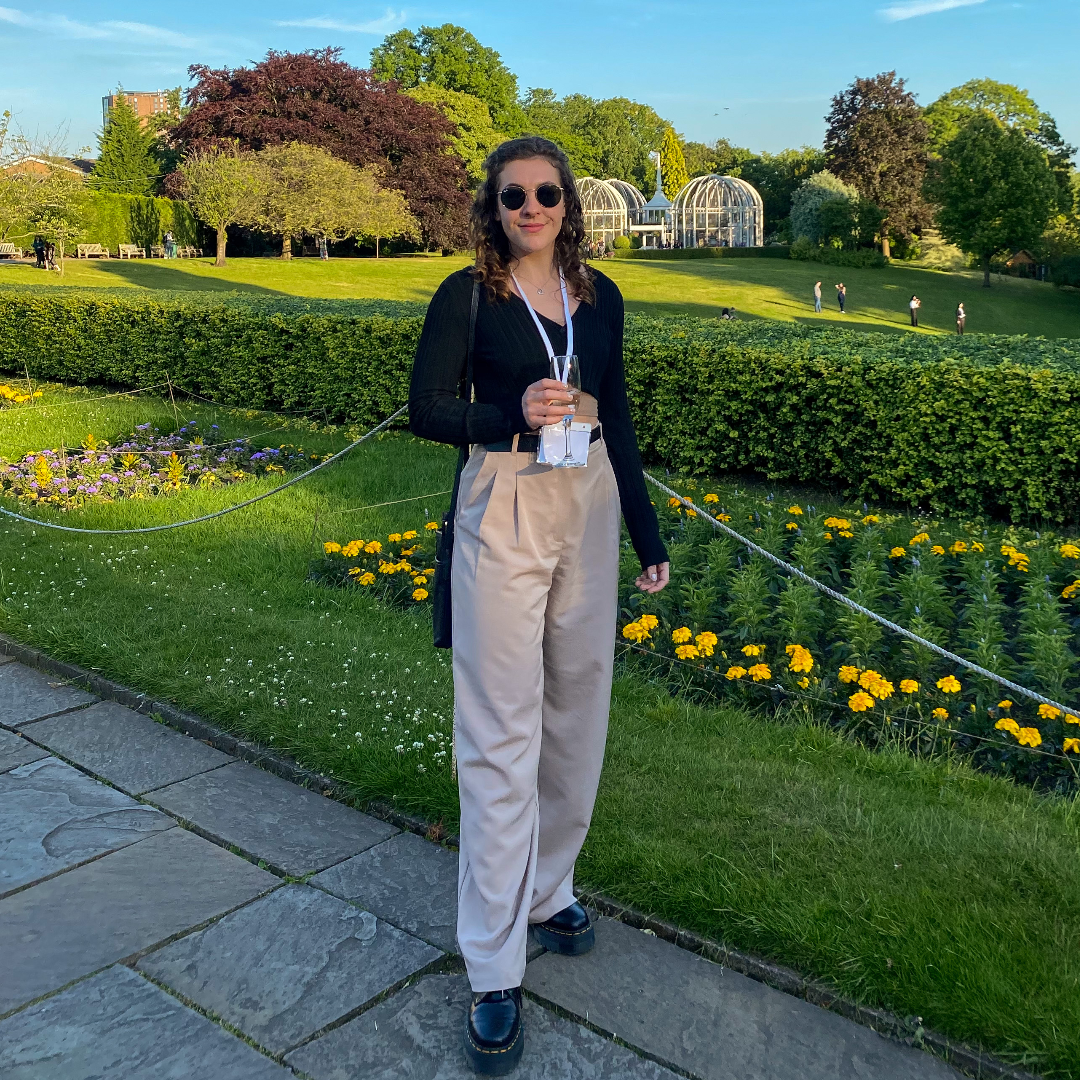Post date:
To mark International Women in Engineering Day (Thursday 23 June 2022), we spoke to bioengineering PhD student Ella-Louise Handley, about her research interests, how she got into engineering, and the advice she would share with the next generation of women in engineering.

Tell us about what inspired you to get into engineering – and the journey you have been on since then.
I loved science from a young age, and always thought it would be amazing to have been an ‘inventor’ in the 1800s. At school I really enjoyed maths, but was drawn by application to real-life problems that engineering provided – and of all the specialities, chemical engineering appealed to me most!
I’ve changed paths a little for my PhD; the human body fascinates me, so bioengineering combines materials science and engineering with biotechnology and medicine in a way that fulfils all of my academic interests.
What does your PhD research focus on, and what motivated you to study this area?
During/after a heart attack, part of the heart dies; unlike other organs such as skin or bone, the heart is unable to repair itself. Though we have excellent management plans post-heart attack, there is currently no cure.
The ultimate goal for tissue engineering is to develop a non-toxic material which, when combined with a source of cells and implanted into the body, encourages repair and regeneration of the diseased area.
Unfortunately tissue engineering still has a really long way to go! I’m hoping within my research to develop new biomaterials, and provide insights into how these interact with cells and their environment.
The theme of this year’s International Women in Engineering Day celebrates ‘Inventors and Innovators’. Why do you think innovative engineers are key to the future of our communities and planet?
Innovation is at the forefront of all engineering. Looking at the global climate crisis, this can only be solved via the development of novel concepts and management of resources.
Most people are aware of the term ‘STEM’, but innovation and inventiveness requires immense creativity, so it’s important to recognise integration of science and the arts via ‘STEAM’ (Science, Technology, Engineering, Arts, Mathematics).
Moving our society forward requires people who think outside of our current realms of possibility – this is why it’s so important to encourage all genders, backgrounds and social demographics into engineering. The more diverse the range of people we have forming ideas the better!
Are there any words of advice or inspiration you would share with the next generation of young women who are considering getting into engineering?
I would encourage anyone thinking about studying engineering to go for it, it’s a challenging but incredibly fulfilling career path.
For younger women, it’s important to trust in yourself and your own abilities – imposter syndrome can be really overwhelming when you’re in a male-dominated space.
Finally, focus on learning how to learn! Everyone works differently, so putting time into figuring out how to best organise your studying will be really beneficial in the long run.
Outside of academic life, what do you enjoy doing?
I’ve recently taken up powerlifting again after an few years hiatus. As an adjunct to celebrating women in engineering, it’s been really empowering to see more females get involved in strength sports within the last few years.


